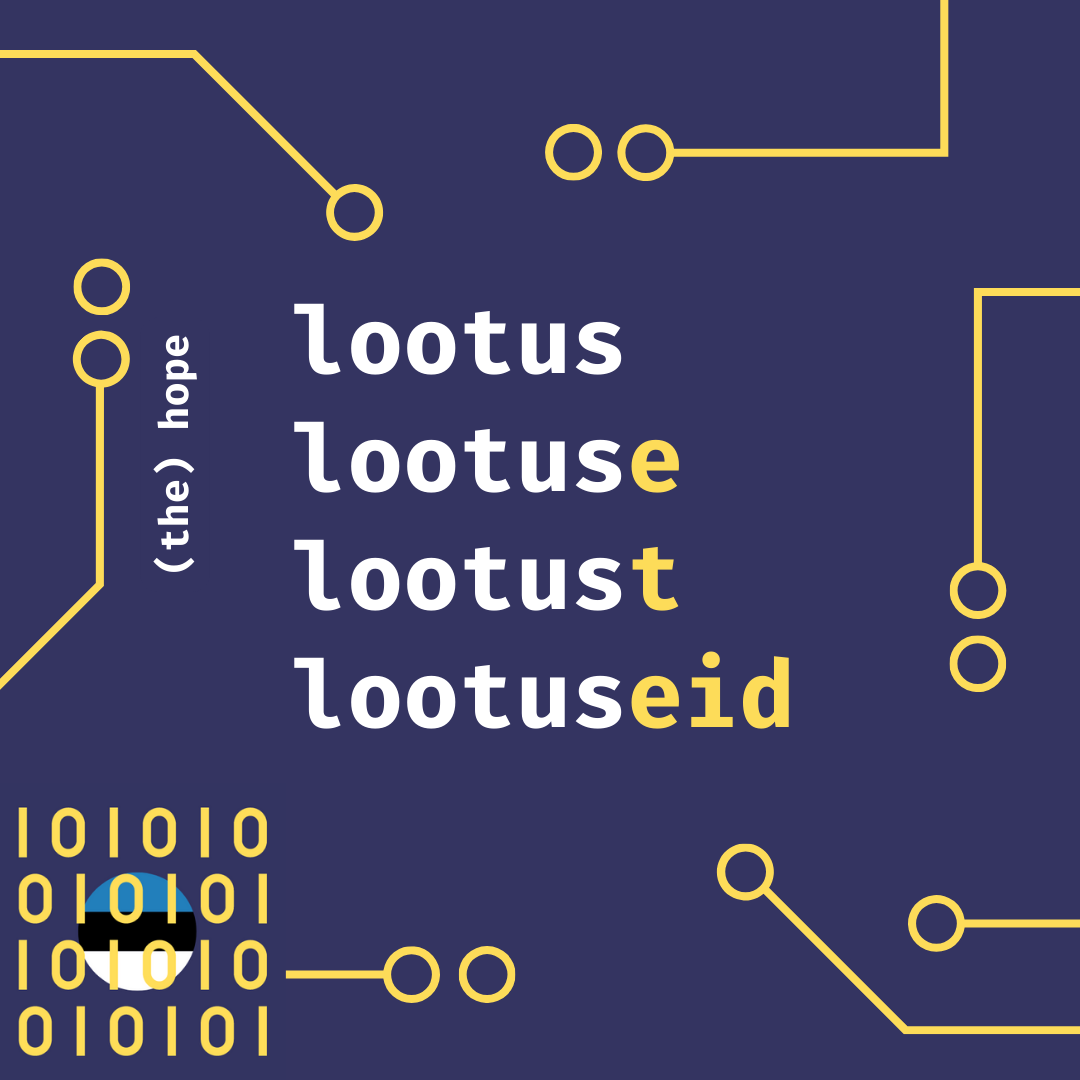Vocab: lootus
hope (noun)
hope (noun)
Building blocks
This word is actually derived from a verb, lootma - to hope.
Thus we can break it down into the following parts:
loot-- the stem of “to hope”-us- a noun-forming ending
The -us ending is a so-called productive one, because one can use it to actively produce new words.
Nouns formed with -us can express one of four things, in this case, it expresses “the action as a phenomenon” according to the Manual of the Estonian Language.
Compare this to armastama (to love) - armastus (love), following the same pattern
How to use it
When talking about hope, there are a couple of things you likely want to express:
whether you have it or not,
what you are hoping for.
Mul on lootust - I have hope (some measure of it)
That’s “mul on” - “on me is” + “lootus” in the Partitive case (3rd base form)
Why the partitive? Because you have some amount of hope, not all the hope that exists.
Mul ei ole enam lootust - I don’t have hope anymore
Same as above, except that the Partitive is necessary because any negated sentence (when something is not) requires the Partitive
Kas inimkonnal on lootust paremale tulevikule? - Does humanity have hope for a better future?
This is a complicated sentence, so let’s break it down:
Kas
- yes/no question particle
inimkonnal
- Noun, "humanity", Adessiv Sg ("on" case)
on
- Verb, 3P Sg Indicative, "is"
lootust
- Noun, Partitive Sg, "hope"
paremale
- Adjective, Allative Sg, "[on]to better"
tulevikule
- Noun, Allative Sg, "[on]to future"From this example, we can see that the thing you are hoping for is indicated by the use of the Allative case, i.e. the “onto something” case which ends on -le.



